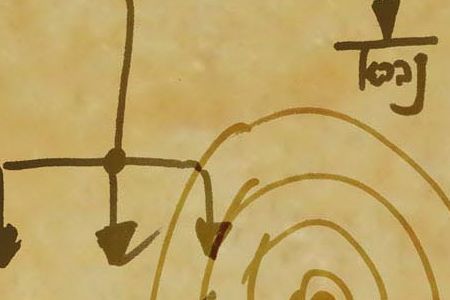Genesis, 41:1-44:17
This Week’s Torah Portion | Nov 28 – Dec 04, 2021 – 24 Kislev – 30 Kislev, 5782
In A Nutshell
The portion, Miketz (At the End), begins with Pharaoh’s dream about seven healthy and well-fed looking cows coming up from the Nile, followed by seven meager and malnourished looking cows. In a second dream, Pharaoh sees seven plump and wholesome looking ears of grain, followed by seven ears that were thin and scorched, and the thin ears eat the plump ones.
None of Pharaoh’s counselors could solve his dreams. The chief cupbearer, who was saved, remembered Joseph and his gift for deciphering dreams. He took the opportunity and asked to bring Joseph out of prison. Joseph came and solved Pharaoh’s dream. He said that there would be seven years of wealth and abundance in Egypt, immediately followed by seven years of hunger, and that Pharaoh should prepare for them.
Joseph also suggested how Pharaoh should prepare for them. Pharaoh appointed Joseph in charge, second only to the king, so he would set up the warehouses.
Indeed, the seven plentiful years were followed by seven years of famine, and the entire nation turned to Joseph to relieve their hunger and help them through it. Everyone, including Jacob’s sons, who were in the land of Israel, came to Egypt due to the hunger.
Jacob’s sons came to Joseph and did not recognize their own brother. At first, Joseph thought they were spies. Afterward, he sent Simeon to prison and said to his brothers, go back, but without Simeon. Joseph hid a goblet in Benjamin’s belongings and declared that if the thief who stole the goblet is caught, he will be put to death, and everyone will be punished.
The brothers returned to Jacob and told him of Joseph’s request that their brother Benjamin should go down to Egypt with them. Initially, Jacob refused to send Benjamin back to Pharaoh because he has already lost Joseph and Simeon, but he finally agreed to let him go.
The portion describes the different predicaments that Joseph puts his brothers through, causing them to separate, but the brothers reinforce their unity.
The portion ends with everyone being in Egypt, Benjamin is accused of stealing the goblet, and Joseph decides to keep him as a slave.

Commentary by Dr. Michael Laitman
These stories represent different states that we must go through as we advance in the correction of our souls. The Torah tells us how we must perform the correction.
There is no need to correct our bodies because they are part of the animal kingdom and exist as do all other animals. Our souls, however, we must beget out of the current state, and this portion narrates how we should approach the correction and achieve the birth of our souls.
It is written, “I have created the evil inclination; I have created for it the Torah as a spice.” In other words, our foundation is the evil inclination, our ego. When we recognize the ego and begin to work with it, we experience first hand the entire process the Torah describes.
The previous portions dealt with the point in the heart that awakens and develops in a person. This portion deals with how that development takes place. We all come from a broken Kli (vessel), which must be corrected, connected. This is the correction by which we achieve the rule, “love your neighbor as yourself; it is the great rule of the Torah,”[1] inferring the connection of all of us into a single Kli, when all the people are as one.
Continue reading “Miketz (At the End) Parsha – Weekly Torah Portion”
